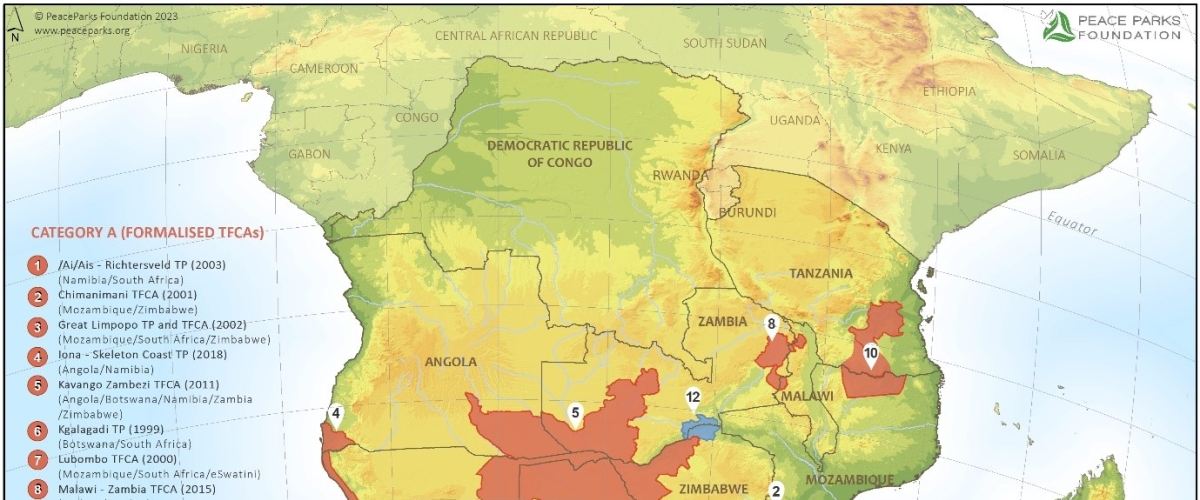
By Steve Collins & Nunes Mazivila
In a strategic move to address environmental challenges and foster sustainable development, Southern African Development Community (SADC) member states have revised and strengthened their approach to Transfrontier Conservation Areas (TFCAs). The newly approved SADC TFCA Programme (2023 -2033), endorsed by the joint meeting of Ministers responsible for Environment, Natural Resources and Tourism on June 22nd, 2023, provides a clear roadmap for implementing these large landscape conservation initiatives.
SADC’s twelve approved TFCAs play a significant role in supporting the implementation of Multilateral Environmental Agreements and contribute to the Sustainable Development Goals (SDGs). These unique landscapes and seascapes promote regional integration, conserve shared natural resources, and stimulate socio-economic development.

TFCAs operate across international boundaries and are fundamental in managing transboundary ecosystems. SADC's approach collaboratively combines social, cultural, and economic systems, supported by the approved SADC protocols and strategies. These frameworks enhance biodiversity conservation and socio-economic development by collaboratively managing shared natural and cultural resources.
In 2021, ministers responsible for Environment, Natural Resources, and Tourism called for a review of the 2013 SADC TFCA Programme. The revision process identified key challenges and opportunities at local, national, regional, and global levels, culminating in the revised 2023-2033 SADC TFCA Programme. This new strategy sets a path towards enhanced accountability and responsibility at various levels and is in line with the Global Biodiversity Framework approved in 2022.
The revised programme focuses on five strategic goals, intending to create a world-class network of sustainably managed transboundary landscapes and seascapes. These include integrated and effective management of transboundary landscapes and seascapes, improved well-being and livelihoods of people, strengthened governance, securing long-term sustainable finance for TFCAs, and enhanced skills and capacity development.
Key to the success of TFCAs is a collective effort from governments, NGOs, local communities, the private sector, and other stakeholders. The TFCA Programme seeks to influence change in conservation practices through policy and legal harmonization, with sustainable finance being one of its most critical challenges. To address this, the programme aims to improve stakeholder capacity to access landscape finance opportunities and capitalize the existing SADC TFCA Finance Facility.
The 2023-2033 SADC TFCA Programme will be implemented at various levels: the regional SADC level, Member State level, and individual TFCA level. Regular reporting and stakeholder engagement will be crucial in monitoring, evaluating, and improving the programme.
The revised SADC TFCA Programme is a step towards a sustainable, collaborative approach to transboundary conservation in Southern Africa. It not only fosters regional integration but also makes a significant contribution towards a carbon-neutral, more equitable and nature-positive world. Through strategic goals and partnerships, a brighter future for SADC and its TFCAs is achievable.
For further information and updates on the SADC TFCA Programme, please visit the SADC TFCA Portal or contact Mr Nunes Mazivila, SADC TFCA Advisor, at nmazivile@sadc.int or Mr Steve Collins, SADC TFCA Network Coordinator at Steve.Collins@afci.de. Together, we can build a sustainable future for transboundary conservation areas in Southern Africa.






